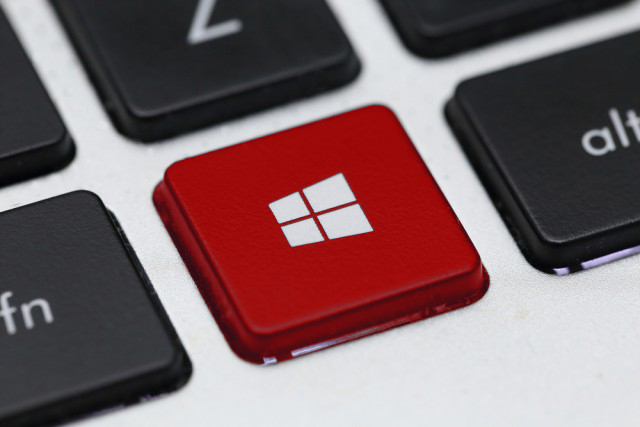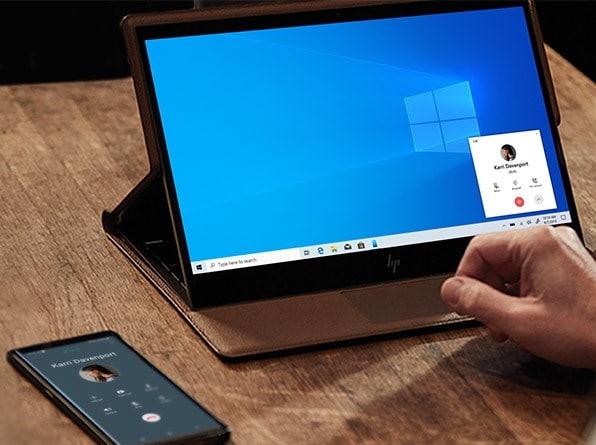
Why businesses need an omni-channel approach to protecting customer data [Q&A]
In the retail sector particularly the line between online and offline worlds is increasingly blurred. But how can businesses protect their customer data effectively in this world?
We spoke to, Gary Barnett, CEO of secure payment systems specialist Semafone to discuss this, the effect of the upcoming CCPA legislation and more.

YouTube Music launches a trio of personalized mixes
There are many music streaming services these days, such as Spotify, Pandora, and Apple Music to name a few. Believe it or not, Google has two such services -- Play Music and YouTube Music. It is very confusing to have one company offering two competing options, but they will eventually be merged into one under the YouTube Music brand.
The problem? As of today, YouTube Music simply isn't up to par with any competitors -- it has a messy interface that can be confusing. While it is slowly getting better all the time, it simply cannot compete with Spotify or Apple Music -- the gold standards. Today, however, YouTube Music is gaining a pretty cool new feature -- personalized mixes.

Professionals skeptical about cybersecurity vendor claims
A new survey of almost 300 IT security professionals in large enterprises finds 53 percent of respondents say most or all cybersecurity vendors rely on unclear, opaque, and ambiguous data to promote their products.
In addition the study from Valimail, a provider of identity-based anti-phishing solutions, finds 42 percent of respondents say cybersecurity products deliver value 'sometimes,' but it is difficult or impossible to prove that value.

Secure cloud helps deliver data-driven innovation
Data usage and analysis are now key drivers of innovation and competitive advantage, but increased data use raises issues surrounding security, privacy and compliance.
Israeli company Satori Cyber is launching a new Secure Data Access Cloud to offer continuous visibility and control of data flows across all cloud and hybrid data stores.

Microsoft now showing non-removable ads in Windows 10 Mail and Calendar apps
Adverts in Windows 10 are not a new thing. Microsoft has a history of sneaking them into any spare real estate in its operating system and included apps. In the past we’ve seen them crop up in the Start menu, in the taskbar, in the Action Center, in File Explorer, in the Ink Workspace, on the Lock Screen, in the Share tool, and in the Windows Store. It’s even currently running full screen ads for Windows 10 inside Windows 7 as the aging operating system reaches its end of life.
Microsoft prefers to call the ads it dots around its OS "suggestions" but that doesn’t make them any less annoying for users. And now the company has added a new ad to the Windows Mail and Calendar apps, and made them impossible to remove.

Microsoft releases first Windows 10 build from its new development branch
Now that Microsoft is nearly finished with the next big feature update of Windows 10 (2004), due out next year, Insiders on the Fast ring are starting to receive new builds from the active RS_PRERELEASE development branch.
In a bid to make things less confusing, Microsoft has dropped the Skip Ahead ring, and Fast ring insiders will now receive the freshest builds, with features not linked to a specific Windows 10 release.

Roku shares top 10 most searched Christmas movies, and sadly, Die Hard is on the list
Christmas may technically be a religious holiday, but for many folks, it is more about enjoying family rather than worshiping. And you know what? That's fine. People have the right to celebrate however they want. Me? I like to do both of those things -- Celebrate the birth of Jesus Christ, but also, spend time with the people I love. Heck, I even like gift-giving -- it is fun to make someone else happy with a present they really want. OK, fine, I like getting gifts too.
One of my favorite activities to do in December is watch Christmas movies. These holiday films really help me to get into the Christmas spirit. It's a great feeling to be wrapped up in a cozy blanket on a comfortable couch and enjoy some wholesome, family-friendly, Christmas movies. This year, popular streaming media platform, Roku, is sharing ts top 10 most searched Christmas movies. While the films on the list are rather predictable, the positions are a bit surprising.

Microsoft's new Windows 10 search feature is just a way to force Bing and Edge on to users
Bing is a godawful search engine. I try to avoid it as much as possible, but on the few occasions when I do use it -- when writing about the new Chromium version of Edge for example -- I find the results it returns are rubbish. In a blind usage test I can instantly spot the difference between it and Google just by the quality -- or lack of -- of the results.
In what it describes as a bid to bring "convenient, fast web results directly to the search bar in Windows" Microsoft has baked (yet more) Bing searches into Windows 10, including a brand new visual search.

DNS amplification attacks continue to grow
DNS amplification attacks have grown by over 4,000 percent over the last year according to Nexusguard's latest threat report.
DNSSEC (Domain Name System Security Extensions) remains the main source of growth in DNS amplification attacks in the quarter, but Nexusguard analysts have also detected a sharp and concerning rise in TCP SYN Flood attacks.

5 ways technology is revolutionizing nightlife
A night on the town brings a feeling like no other. Letting your hair down, dancing with old friends and making new friends as you dance the night away. From alternative and underground to the VIP and luxury, there was something for everyone.
But it seems something has changed. In 2018, The Guardian reported that the value of the UK’s nightclub scene had dropped by an estimated £200m in the past five years. People are swapping gin for gyms and martinis for mini golf. So, is the nightclub industry on its way out? With some adapting, evolving and a heavy helping of tech, it’s possible that we’re seeing nightclubs claw back their popularity. Gone are the days of cheap pints and sticky floors. Nowadays people want uniqueness, something that’s worthy of uploading to Instagram, and something entirely experiential.

Majority of leaked records in 2019 came from financial services firms
According to a new report, more than 60 percent of all leaked records in 2019 were exposed by financial services organizations, despite only six percent of breaches affecting these organizations.
The 2019 Financial Breach Report from Bitglass says these figures are at least partially due to the Capital One breach, which compromised more than 100 million records.
Microsoft reveals a new Windows logo and scores of redesigned icons
Aesthetics are an important part of app design and branding, and change is not something that is undertaken lightly -- particularly when it comes to big names. Following on from revealing a new-look icon for its Chromium-based Edge browser, Microsoft has now taken the wraps off more than 100 redesigned icons.
This is not a minor undertaking. Here Microsoft is introducing new colors, materials and finishes as the company goes all-in with its Fluent design language.

Star Wars: The Rise of Skywalker lands in Facebook Messenger
It's that time of year again: time for a new Star Wars movie. Inevitably, this means there is lots of marketing and a lot of tie-ins, and Facebook is never one to miss out on a trend.
Star Wars: The Rise of Skywalker is here, and as such Facebook Messenger is getting something of a Star Wars makeover, with new themes, reactions, stickers and augmented reality effects. Facebook says that they are "limited-edition Messenger features" -- so move quickly, you must.

Google slaps blocks on some Linux web browsers
It may seem that the big names of tech are eager to embrace -- and to be seen embracing -- Linux, but Google is being a little selective.
Users of the Konqueror, Falkon and Qutebrowser web browsers for Linux-based operating systems have reported that they are unable to log into Google services. What's strange is that not all users of these browsers are affected, but many people are seeing a warning when they try to use them.

Microsoft now lets you make calls from your PC
Microsoft has added a much called-for feature to its Your Phone app -- the ability to make phone calls from Windows.
Working with a phone and PC at the same time can be a pain, and this was part of the reason Microsoft developed the Your Phone app. The feature had been available to insiders testing preview version of the software, and now the company is making the feature available to everyone.
